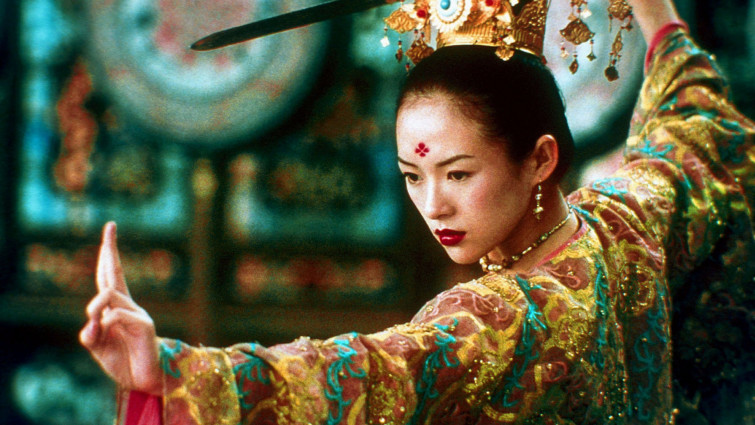

Member review

House Of Flying Daggers
Visually stunning martial-arts action adventure, fused with tragic romance, set in ancient China.
Certificate
Duration114 mins
Review by
- Vincent, 18
- 17 reviews
Review by Vincent, 18
The story is a clever potrayal of life and love in a time and place more magical than now. It uses bold and stylistic visual techniques to not only grab the viewers attention but to bring about the small things in the film such as Mei pouring out her heart for Jin (shown by her literally bleeding out) at the end. It’s brilliance is not only show cased by the stunning plethora of visual treats but is also in the story line. The story weaves together tales of love and loss and a powerful message: “Faced with the brutality reality and wish the outcome can only be the destruction of the individual.” Zhang Ziyi gives a convincing solid performance, showing she is the master of every emotion from abandon to jubilation. The story line had an interesting twist. I am not convinced how ever by the way it went about bringing its complications. It employed one too many “cheap tricks” in my opinion. It couped out from showing its full ingenuity by going fro the old cliches like: the blind trick she is forced to do with drums is the same game she and her “tormentor” used to play. It tried too hard to show a convincing romance between Mei and Jin. It went for the tired plot of: man is conspiring against girl; men plays his game convincingly; then man loses contact or support from fellow conspiartors; man finds himself in danger with the dame; man and dame share the bond of near death and start feeling comfortable with each other; then the next thing we know they have fallen head over heels. There are one too many “touchy moments” which again are in too much of a contrast with the slick machismo that surrounds the film. The film has powerful feminist undertones. It tells of the right of women to choose, of the way women were treated, Niu says: “you can’t force a woman against her will” and at the beginning we hear: “perform well and I will let you go”. The film talks about the violence of endurance (in the form of the Captain) and the passion of love (in the form of Jin). Three years versus three days but the one best for the soul, the film says is the passionate true one that does not need to grow but exists from the fist moment fully formed. However, the film is a tragedy and goes on to say that this cannot work in a real world run by politics and violence. The individual who is caught between the two is the one who ultimately gets hurt. The film, however leaves a little hope in possibilities; what if Jin had not returned, Mei would have got up and found help; what if Mei had not gone after Jin and had stayed, to seek himanother day when the tide allows. It leaves possibilies that maybe theirs was not necessarily how all true loves end. But then, at the same time, their relationship is fast and passionate and is doomed to end that way. We already have the message that their love is true love; so though it gives us that bit of hope it leaves the conclusion ambiguous. All in all the film is a great pleasure to watch and is well worth watching twice. It draws heavily on classic film styles, concentarting heavily on the colours of things. Colours give meaning to the story (Jin and Mei wear blue and green almost all through the movie, highliting their primalness, and how basic and fundamental their relationship is – these are primal colours). The leaves of trees become more and more red as the tale continues, moving through the seasons; forshadowing the ineviatble. The plot itself is reminiscent of classical litearature.